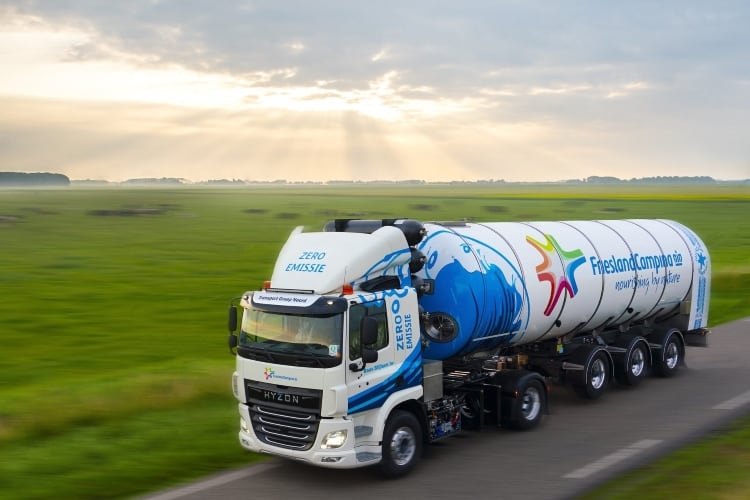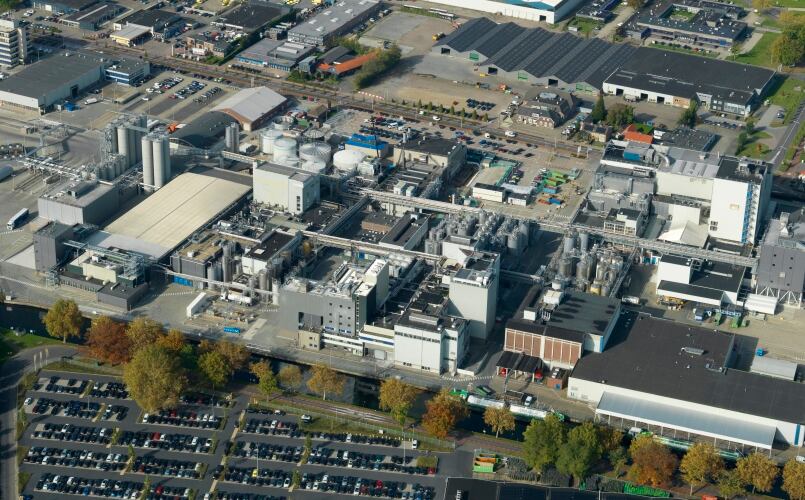FrieslandCampina said its milk trucks are becoming increasingly sustainable. It said over the last decade, CO2 emissions per kilometer of transport between farms and production locations has dropped by 18.1% per tonne of product.
However, due to the increase in milk supply, more kilometers were driven in total, so the absolute emissions decreased by 3.3% per tonne of product.
Other initiatives include electric pumping when loading milk at the farm, making use of green electricity generated by member dairy farmers and solar cells on the milk trucks.
The cooperative said currently only the infrastructure in the Groningen region (the Netherlands) allows for the use of hydrogen milk trucks, but possibilities to expand to other parts of the countries are actively under investigation.
Hans Wieleman, manager milk logistics at FrieslandCampina, said, “We keep challenging and improving ourselves step by step. Over five years ago, FrieslandCampina started using liquid natural gas (LNG) as cleaner fuel for the milk trucks and we - successfully - stimulated filling stations all over the Netherlands to supply this type of fuel. Now we try to do the same with hydrogen in close cooperation with producer Hyzon and carrier Transport Groep Noord. Transport is and will remain important to further increase the sustainability at FrieslandCampina. We want to minimize the environmental impact of our milk trucks together with the parties involved.”
In the sustainability program ‘Nourishing a better planet’ FrieslandCampina sets goals including CO2-neutral production in the year 2050. As an intermediate step the dairy company wants to reduce the greenhouse gas emissions by more than one third in the year 2030 compared to its reference year of 2015.
The vehicle, a HyMax 450 Puller built on a Class-8 DAF truck chassis, is expected to have up to 520 kilometer range with motor power up to 550 kilowatt capacity.
Hyzon said hydrogen-powered trucks can carry 2-5 tons more than battery electric trucks due to lower weight of hydrogen fuel systems; additionally, Hyzon said its fuel cell power density leads to advantages over both fuel cell and battery electric competitors.
"FrieslandCampina's commitment to decarbonizing their operations can serve as a model for transitioning commercial transport to hydrogen-powered vehicles," said Hyzon CEO Craig Knight.
"Its existing successes demonstrate that reducing emissions is possible in the short-term. Deploying Hyzon's hydrogen fuel cell-powered trucks to a global company like FrieslandCampina provides another tangible example that companies can make a real impact in reducing fleet emissions right now."
Transport Groep Noord operates 25 trucks for FrieslandCampina.




